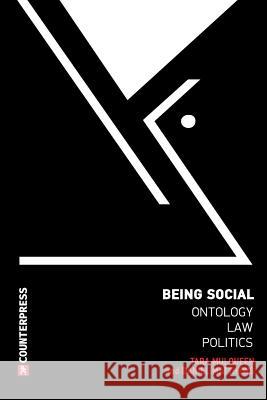Being Social: Ontology, Law, Politics » książka
Being Social: Ontology, Law, Politics
ISBN-13: 9781910761007 / Angielski / Miękka / 2015 / 144 str.
Being Social brings together leading and emerging scholars on the question of sociality in poststructuralist thought. The essays collected in this volume examine a sense of the social which resists final determination and closure, embracing an anxiety and undecidability of sociality, rather than effacing it. Through issues including queer politics, migration, and Guantanamo, recent events such as the occupation of Gezi Park in Istanbul, and theoretical explorations of themes such as writing, law, and democracy, contributors assess how a reconfigured sociality affects thinking and practice in the legal and political realms. With a particular emphasis on Jean-Luc Nancy, whose work brings questions of community to the fore, these essays explore how the consistent 'unworking' of sociality informs the tenor and form of political debate and engagement. REVIEW "What this book shows are the very real changes that have occurred, and are occurring, in the disparate moments of critical legal praxis; where the exposure of legal frameworks to the voices and actions of diverse practices and groups re-inscribe the groundlessness of that ground upon which the law must tread." -- Social and Legal Studies (2016)
Being Social brings together leading and emerging scholars on the question of sociality in poststructuralist thought. The essays collected in this volume examine a sense of the social which resists final determination and closure, embracing an anxiety and undecidability of sociality, rather than effacing it. Through issues including queer politics, migration, and Guantanamo, recent events such as the occupation of Gezi Park in Istanbul, and theoretical explorations of themes such as writing, law, and democracy, contributors assess how a reconfigured sociality affects thinking and practice in the legal and political realms. With a particular emphasis on Jean-Luc Nancy, whose work brings questions of community to the fore, these essays explore how the consistent 'unworking' of sociality informs the tenor and form of political debate and engagement.REVIEW:
"What this book shows are the very real changes that have occurred, and are occurring, in the disparate moments of critical legal praxis; where the exposure of legal frameworks to the voices and actions of diverse practices and groups re-inscribe the groundlessness of that ground upon which the law must tread." — Social and Legal Studies (2016)











